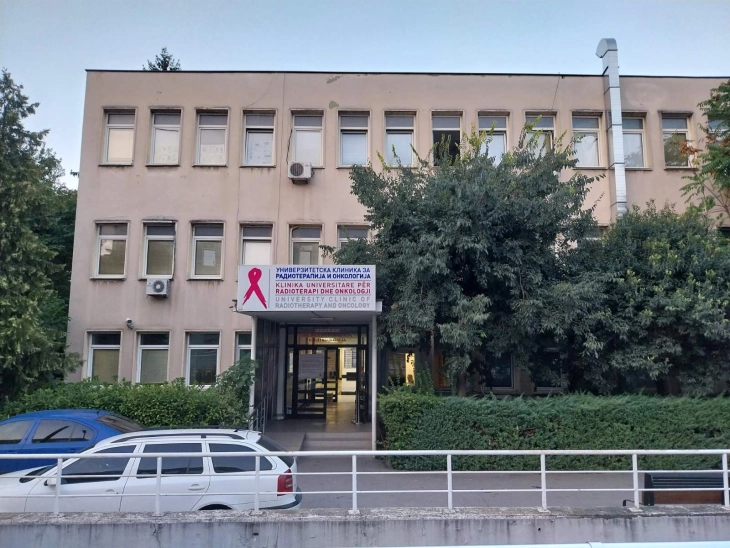Oncology case: Procurements without public calls; excess stockpiles of cancer drugs; illicit financial gain of EUR 30 million
- Seven public procurements negotiated without a public call and without the approval of the Health Insurance Fund; expensive treatments administered the day before patients died; and making excess stockpiles of cancer drugs are some of the charges the Oncology Clinic's former director Nino Vasev, former organizational director Nehat Nuhi, and three oncologists are facing after the Public Prosecution Office wrapped up its preliminary investigation into the cancer-treatment center.

Skopje, 31 January 2024 (MIA) — Seven public procurements negotiated without a public call and without the approval of the Health Insurance Fund; expensive treatments administered the day before patients died; and making excess stockpiles of cancer drugs are some of the charges the Oncology Clinic's former director Nino Vasev, former organizational director Nehat Nuhi, and three oncologists are facing after the Public Prosecution Office wrapped up its preliminary investigation into the cancer-treatment center.
According to public prosecutor Ana Gogovska Jakimovska at a press conference Wednesday, the five suspects acted together in stockpiling drugs. It is yet to be determined where these excess stockpiles ended up, but according to the preliminary investigation, this led to an illicit financial gain for a third party in the amount of roughly 30 million euros.
Gogovska Jakimovska said drugs had been procured without any public procurement contracts and the invoices delivered only after a subsequent public procurement procedure had been completed, eliminating any potential competition.
"Medications were procured after concluding agreements with suppliers without the approval of the Health Insurance Fund," the public prosecutor said. She added that drugs procured at the Oncology Clinic from 2018 to 2021 were not invoiced by the Health Insurance Fund. The hospital had also exceeded its allowed budget.
According to Gogovska Jakimovska, negotiating procurement contracts without a public call was not transparent and subject to corruption due to the non-existent control mechanisms.
Given the inconsistencies in hospital records, she said, more drugs had been procured than necessary for administering to patients.
Also, she said, dying patients had been given prescriptions for expensive new-generation drugs and targeted and immunotherapy treatments the day before their deaths, when it was obvious the patients were unlikely to live long enough for the drugs to work.
She pointed out that the paperwork the investigators reviewed showed that the prescriptions had been written. Still, it was unclear whether they had actually been administered.

During the preliminary investigation, the prosecutor said, investigators reviewed over 500 case histories and over 25,000 patient records in electronic form.
They also found inventory inconsistencies. "There was a discrepancy between the monthly data on drugs issued by the pharmacy and drugs received by the hospital units," she said. The hospital did not have an official procedure on determining drug quantities needed on a weekly, monthly and yearly basis.
"Bear in mind that the medical director put his signature and stamp on each prescription," she stressed.
Regarding the next steps for the prosecution, Gogovska Jakimovska said documents were still being collected, including reports pending from the Health Insurance Fund's emergency audit and from Slovenian forensics.

The head of the Skopje Public Prosecutor's Office, Gavril Bubevski, who also addressed the press, said it was journalists and their investigative reporting into the Oncology case that had prompted the criminal probe. mr/







